You’re welcome to hang out. Twitter // FB // Insta // See Website for Links. https://jcbusick.wixsite.com/mrbusick .
Last active 4 hours ago
Don't wanna be here? Send us removal request.
Text
“I want to live the rest of my life, however long or short, with as much sweetness as I can decently manage, loving all the people I love, and doing as much as I can of the work I still have to do. I am going to write fire until it comes out my ears, my eyes, my noseholes—everywhere. Until it’s every breath I breathe. I’m going to go out like a fucking meteor!”
— — Audre Lorde, from “A Burst of Light: Living with Cancer,” The Selected Works of Audre Lorde (via lifeinpoetry)
9K notes
·
View notes
Text
“Give the pupils something to do, not something to learn; and the doing is of such a nature as to demand thinking; learning naturally results.”
— John Dewey, Democracy and Education
319 notes
·
View notes
Text
Happy birthday, Walt Whitman (b. 31 May 1819)
A noiseless, patient spider, I mark’d, where, on a little promontory, it stood, isolated; Mark’d how, to explore the vacant, vast surrounding, It launch’d forth filament, filament, filament, out of itself; Ever unreeling them—ever tirelessly speeding them. And you, O my Soul, where you stand, Surrounded, surrounded, in measureless oceans of space, Ceaselessly musing, venturing, throwing,—seeking the spheres, to connect them; Till the bridge you will need, be form’d—till the ductile anchor hold; Till the gossamer thread you fling, catch somewhere, O my Soul.
497 notes
·
View notes
Link
A year after the first revelations about the Hollywood producer Harvey Weinstein, I wanted to to sit down and read about women’s experiences, to stay silent for a while, and hopefully learn something. It has been painful to listen to the stories of systematic sexual abuse that have emerged as a result of the #MeToo movement, and also an education; it has forced me to see things I had failed to see in the past. Before, I knew sexual assaults were endemic, but I didn’t realise they were this endemic. I also understood that the blame is often put on the victim. But I had never really seen this, not in such a concrete and shockingly visible way.
It has been a late awakening and, over the course of the year, a couple of overdue questions emerged: what can men do to show solidarity with women, and what can we do to address a culture of toxic masculinity and begin examining ourselves?
There is clearly more than one way to do this. The journalist Richard Godwin has described in the Guardian how, in his quest to examine modern manhood, he found groups where men were doing “breathing exercises, talking about their fathers, pretending to be tigers, leaning in on one another, working out which Jungian archetype we vibed with, and trying to articulate why we all felt so defensive and angry and misunderstood so much of the time”.
I opted for a quieter approach, following the advice that, to show solidarity with the movement, you could begin by seriously listening to women. So I decided to spend the month leading up to the first anniversary of the Weinstein revelations reading some feminist classics, which, for inexplicable reasons, I had never got round to. I’m sure there are embarrassing and unflattering underlying reasons for this omission, but I’m not sure what they are. Perhaps it was as depressingly simple as the fact that the works of (white) male authors had always been closer to hand – through reading lists and book reviews and recommendations – than the works of (black) feminist writers.
With the help of two editors from this newspaper, a list of 13 books was compiled – far from comprehensive, but including some of the most influential feminist works of the last few centuries. A Vindication of the Rights of Woman by Mary Wollstonecraft, 1792; The Second Sex, Simone de Beauvoir, 1949; The Feminine Mystique, Betty Friedan, 1963; The Female Eunuch, Germaine Greer, 1970; Woman Hating, Andrea Dworkin, 1974; Women, Race and Class, Angela Davis, 1981; Sister Outsider, Audre Lorde, 1984; Gender Trouble, Judith Butler, 1990; Feminism Is for Everybody, bell hooks, 2000; Lean In, Sheryl Sandberg, 2013; Men Explain Things to Me, Rebecca Solnit, 2014; Bad Feminist, Roxane Gay, 2014; We Should All Be Feminists, Chimamanda Ngozi Adichie, 2014.
In early September, I started reading. Halfway through De Beauvoir’s The Second Sex, I came across a passage that seemed to sum up the shocking insight of #MeToo. De Beauvoir writes that almost all young women, including what she calls “well-protected” ones, have been exposed to “regrettable incidents”, which, in conventional circles, are “hushed up by common agreement”. [keep reading]
151 notes
·
View notes
Text

Brice Marden - Ru Ware Project
Oil on linen, 9 canvases, each, 61 × 46 cm, overall, 61 × 411 cm, 2007-2012
24 notes
·
View notes
Text

Let’s explore a powerful technique for generating story ideas from the subconscious. The idea is to become more consciously observant. Start writing things down in a “seed journal”. We want to create a collection of story seeds. These might be fragments of intriguing thoughts, snippets of movie quotes or song lyrics, dialogue you may have overheard, interesting images or just anything that piques any bit of interest or curiosity. The important thing to remember is that these seeds don’t need to be story ideas–they’re just snippets of things that spark your interest. Just write down things that “spark joy”. So why does this work as a story idea generation tool? As you start practicing being observant, ideas that were there all along will start to become visible. Your mind will get into the habit of noticing what’s interesting. And the better you get at noticing what’s interesting, the better you’ll get at identifying the core of great story premises. Be sure to continually ask, “What if?” It’s perhaps the most creative and powerful tool we have as writers.
32 notes
·
View notes
Text
an upside down perspective of a school with integrity requires...
“Administrators in public institutions, like schools, middle management in business. or bureaucrats in government are perpetually seeking to justify their position of power by creating redundant, unnecessarily overreaching reforms. Of course when the these three wasteful entities combine to profit, their own existence must be purged or cleansed. We become essential to maintaining or creating the actual integrity of our public institutions, thereby justifying our common existence. Schools, parks, libraries, etc., have very little need for “expertise” beyond what teachers do… teach. How, for example, is a principal more valuable than a good teacher, an asst. superintendent more important than a counselor, or a dean more significant than a coach? Honestly? An honest answer requires us to flip it over and build from the base, the foundation of all communities.”
kermiteby3
2 notes
·
View notes
Text
“The shame of it was they both loved each other, but they were both too young to know how to love.”
— Antoine de Saint Exupéry, The Little Prince (via the-book-diaries)
542 notes
·
View notes
Photo

Alice Neel (American, 1900-1984), Hartley and Lushka, 1970. Ink on paper, 71.1 x 56.2 cm.
804 notes
·
View notes
Link
Movies featuring a philosopher: Zizek! Examined Life Derrida The Ister The Pervert’s Guide To Cinema Being In The World (2010)
Movies with philosopher as a character: Bill And Ted’s Excellent Adventure (2001) (Tony Steedman as Socrates) When Neitzsche Wept (2007) (Armand Assante as Friedrich Nietzsche) The Last Days Of Immanuel Kant (1994) (David Warrilow as Immanuel Kant) The Alchemist Of Happiness (2004) (Abol Reza Kermani as Ahmad al-Ghazali) Um Estrangeiro em Porto Alegre (1999) (Nelson Diniz as Albert Camus) Cartesius (Ugo Cardea as René Descartes) Blaise Pascal ( Pierre Arditi as Blaise Pascal) Socrates (Jean Sylvère as Socrates) Socrates (1982) (James Mason as Socrates) Augustine Of Hippo (Dary Berkani as St. Augustine) Beyond Good & Evil (Erland Josephson as Friedrich Nietzsche) Wittgenstein (Clancy Chassay as Young Ludwig Wittgenstein) Alexander (Christopher Plummer as Aristotle)
Famous thought experiments or discussion of a famous philosophical problem: Rashomon – General intro to Subjectivity/Objectivity Groundhog Day – Modern interpretation of The Myth of Sisyphus Being There – Socially constructed reality; what I like to call The Problem of Communication Being John Malkovich – The Inescapable Subjectivity of the Human Mind I ♥ Huckabees – Loose Adaptation of the History of Philosophy in Narrative Form A.I. – Any movie that has robots that think like humans will do Eternal Sunshine – Materialism; Metaphysics of Memories Minority Report – Freewill/Determinism The Matrix – Most people will say this is all based on Plato’s cave. I think Cartesian Dualism is a closer influence. The main reason for this is that one is not in the same body when in the Matrix as without. The distinction between consciousness and body was brought up famously by Descartes. The Truman Show – This is the true home of Plato’s Cave in modern movies. Although Truman never leaves the cave, a reality which he has only experienced as a shadow is implied and shown briefly. Thank You for Smoking – Pre-Socratic/Postmodern Rhetoric A Clockwork Orange – Person Identity; Political Theory; Justice; blah blah blah Lake Of Fire – Ethical considerations of abortion Inception – This film is brand new and is at the center of fierce discussion, which is the life blood of philosophical inquiry. As for the topics it raises itself: Although it can be argued that Nietzsche preceded Freud in discovery of the unconscious, the Freudian version is forefront in Inception. Freud’s psychoanalytic method had much to do with dreams and how they affect and describe us. Also, Cartesian skepticism, or The Problem of The External World, comes to surface. Pi – The Ontology of Numbers Waking Life – This feels more obligatory than anything else on here. If I include Alexander and Bill and Ted, I guess this one deserves to be here as well. But with all its pretension it actually offers a somewhat realistic cross section of the philosophical academic experience. Some thinkers sound like they are brilliantly laying out real solutions to real problems, some seem like they may be saying something insightful but are just not articulate enough, some are just too esoteric to tell and some are just simply on drugs. Stranger Than Fiction – The Authentic Individual Ikiru – Being-unto-death The Seventh Seal – The Angst Of The Absurd The Gods Must Be Crazy – I can’t even count how many times this movie was referenced in discussions about “Being and Time” by Martin Heidegger. The coke bottle is a piece of equipment that suddenly lands in a culture without the referential totality of coke bottles. As such, for the bushmen, the coke bottle ceases to be equipment though it retains readiness-to-hand as its mode of being.
Movies featuring the ideas of particular philosophers: Nietzsche (2003) My Night At Maud’s Nietzsche and the Nazis (2006)
Movies based on Novels written by famous philosophers: The Stranger (by Albert Camus) Le Journal Du Séducteur (1996) (by Soren Kierkegaard) The Fountainhead (by Ann Rand)
Other: The Elegant Universe (2003) M.A. Numminen Sings Wittgenstein (1993) M.A. Numminen, accompanied by Pedro Hietanen, sings an excerpt from Ludwig Wittgenstein’s Tractatus Logico-Philosophicus in his inimitable style. -imdb
887 notes
·
View notes
Text
“We all write poems; it is simply that poets are the ones who write in words.”
— John Fowles, The French Lieutenant’s Woman (via the-book-diaries)
503 notes
·
View notes
Text
Livre d’artiste – Olivier Umecker
www.olivierumecker.fr
15 notes
·
View notes
Text
bell hooks masterpost
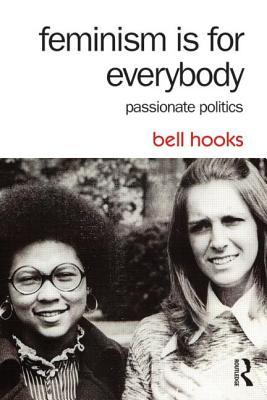
What is feminism? In this short, accessible primer, bell hooks explores the nature of feminism and its positive promise to eliminate sexism, sexist exploitation, and oppression. With her characteristic clarity and directness, hooks encourages readers to see how feminism can touch and change their lives–to see that feminism is for everybody.
PDF
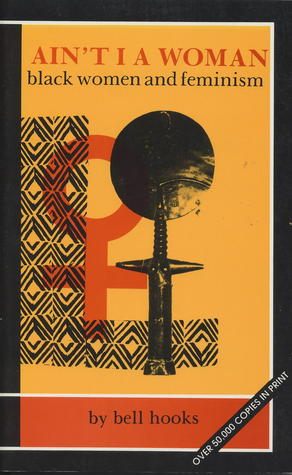
A groundbreaking work of feminist history and theory analyzing the complex relations between various forms of oppression. Ain’t I a Woman examines the impact of sexism on black women during slavery, the historic devaluation of black womanhood, black male sexism, racism within the recent women’s movement, and black women’s involvement with feminism.
PDF
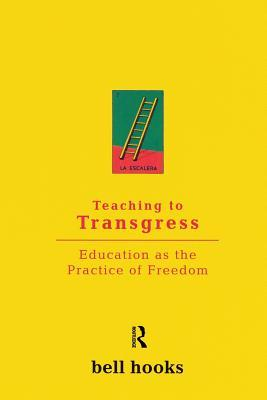
In Teaching to Transgress, bell hooks–writer, teacher, and insurgent black intellectual–writes about a new kind of education, educations as the practice of freedom. Teaching students to “transgress” against racial, sexual, and class boundaries in order to achieve the gift of freedom is, for hooks, the teacher’s most important goal. Bell hooks speaks to the heart of education today: how can we rethink teaching practices in the age of multiculturalism? What do we do about teachers who do not want to teach, and students who do not want to learn? How should we deal with racism and sexism in the classroom? Full of passion and politics, Teaching to Transgress combines practical knowledge of the classroom with a deeply felt connection to the world of emotions and feelings. This is the rare book about teachers and students that dares to raise critical questions about eros and rage, grief and reconciliation, and the future of teaching itself.
PDF
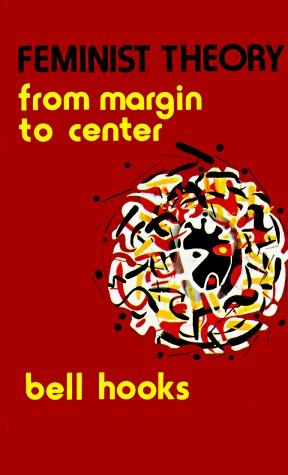
A sweeping examination of the core issues of sexual politics, bell hooks’ new book Feminist Theory: from margin to center argues that the contemporary feminist movement must establish a new direction for the 1980s. Continuing the debates surrounding her controversial first book, Ain’t I A Woman, bell hooks suggests that feminists have not succeeded in creating a mass movement against sexist oppression because the very foundation of women’s liberation has, until now, not accounted for the complexity and diversity of female experience. In order to fulfill its revolutionary potential, feminist theory must begin by consciously transforming its own definition to encompass the lives and ideas of women on the margin. Hooks’ work is a challenge to the women’s movement and will have profound impact on all whose lives have been touched by feminism and its insights.
PDF
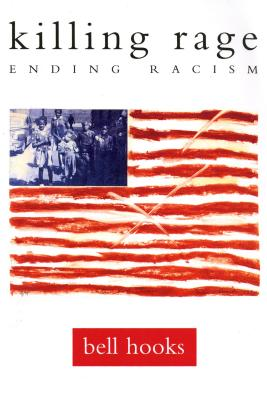
One of our country’s premier cultural and social critics, bell hooks has always maintained that eradicating racism and eradicating sexism must go hand in hand. But whereas many women have been recognized for their writing on gender politics, the female voice has been all but locked out of the public discourse on race. Killing Rage speaks to this imbalance. These twenty-three essays are written from a black and feminist perspective, and they tackle the bitter difficulties of racism by envisioning a world without it. They address a spectrum of topics having to do with race and racism in the United States: psychological trauma among African Americans; friendship between black women and white women; anti-Semitism and racism; and internalized racism in movies and the media. And in the title essay, hooks writes about the “killing rage"—the fierce anger of black people stung by repeated instances of everyday racism—finding in that rage a healing source of love and strength and a catalyst for positive change.
PDF
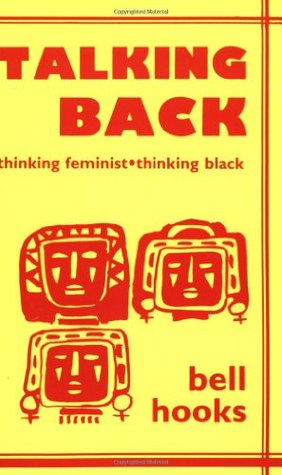
bell hooks writes about the meaning of feminist consciousness in daily life and about self-recovery, about overcoming white and male supremacy, and about intimate relationships, exploring the point where the public and private meet.
PDF
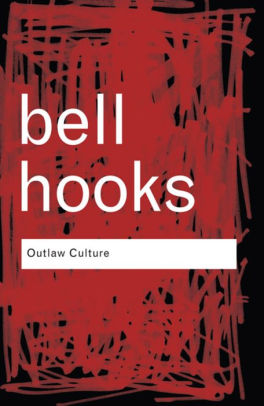
According to the Washington Post, no one who cares about contemporary African-American cultures can ignore bell hooks’ electrifying feminist explorations. Targeting cultural icons as diverse as Madonna and Spike Lee, Outlaw Culture presents a collection of essays that pulls no punches. As hooks herself notes, interrogations of popular culture can be a ‘powerful site for intervention, challenge and change’. And intervene, challenge and change is what hooks does best.
PDF
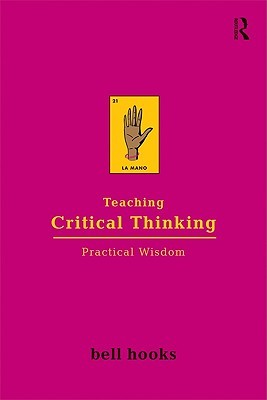
Addressing questions of race, gender, and class in this work, hooks discusses the complex balance that allows us to teach, value, and learn from works written by racist and sexist authors. Highlighting the importance of reading, she insists on the primacy of free speech, a democratic education of literacy. Throughout these essays, she celebrates the transformative power of critical thinking. This is provocative, powerful, and joyful intellectual work. It is a must read for anyone who is at all interested in education today.
PDF

Although it may not be the goal of filmmaker, most of us learn something when we watch movies. They make us think. They make us feel. Occasionally they have the power to transform lives. In Reel to Real, Bell Hooks talks back to films she has watched as a way to engage the pedagogy of cinema - how film teaches its audience. Bell Hooks comes to film not as a film critic but as a cultural critic, fascinated by the issues movies raise - the way cinema depicts race, sex, and class. Reel to Real brings together Hooks’s classic essays (on Paris is Burning or Spike Lee’s She’s Gotta Have it) with her newer work on such films as Girl 6, Pulp Fiction, Crooklyn, and Waiting to Exhale, and her thoughts on the world of independent cinema. Her conversations with filmmakers Charles Burnett, Julie Dash, and Arthur Jaffa are linked with critical essays to show how cinema can function subversively, even as it maintains the status quo.
PDF
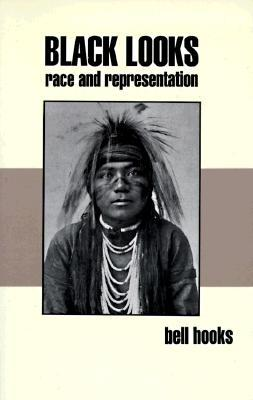
In these twelve essays, bell hooks digs ever deeper into the personal and political consequences of contemporary representations of race and ethnicity within a white supremacist culture.
PDF
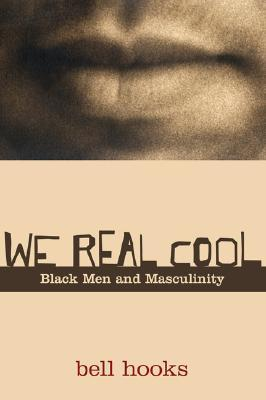
When women get together and talk about men, the news is almost always bad news,” writes bell hooks. “If the topic gets specific and the focus is on black men, the news is even worse.” In this powerful new book, bell hooks arrests our attention from the first page. Her title–We Real Cool; her subject–the way in which both white society and weak black leaders are failing black men and youth. Her subject is taboo: “this is a culture that does not love black males: ” “they are not loved by white men, white women, black women, girls or boys. And especially, black men do not love themselves. How could they? How could they be expected to love, surrounded by so much envy, desire, and hate?
PDF
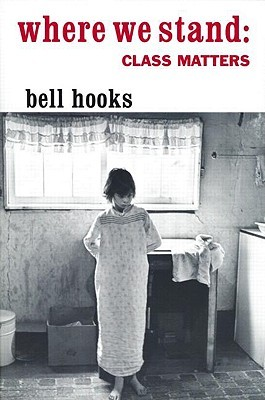
Drawing on both her roots in Kentucky and her adventures with Manhattan Coop boards, Where We Stand is a successful black woman’s reflection–personal, straight forward, and rigorously honest–on how our dilemmas of class and race are intertwined, and how we can find ways to think beyond them.
PDF
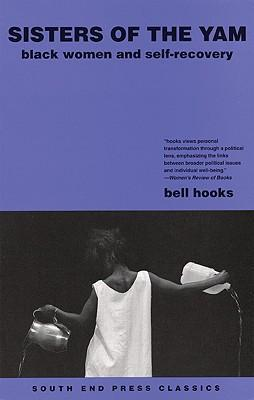
In Sisters of the Yam, hooks examines how the emotional health of black women is wounded by daily assaults of racism and sexism. Exploring such central life issues as work, beauty, trauma, addiction, eroticism and estrangement from nature, hooks shares numerous strategies for self-recovery and healing. She also shows how black women can empower themselves and effectively struggle against racism, sexism and consumer capitalism.
PDF
10K notes
·
View notes



